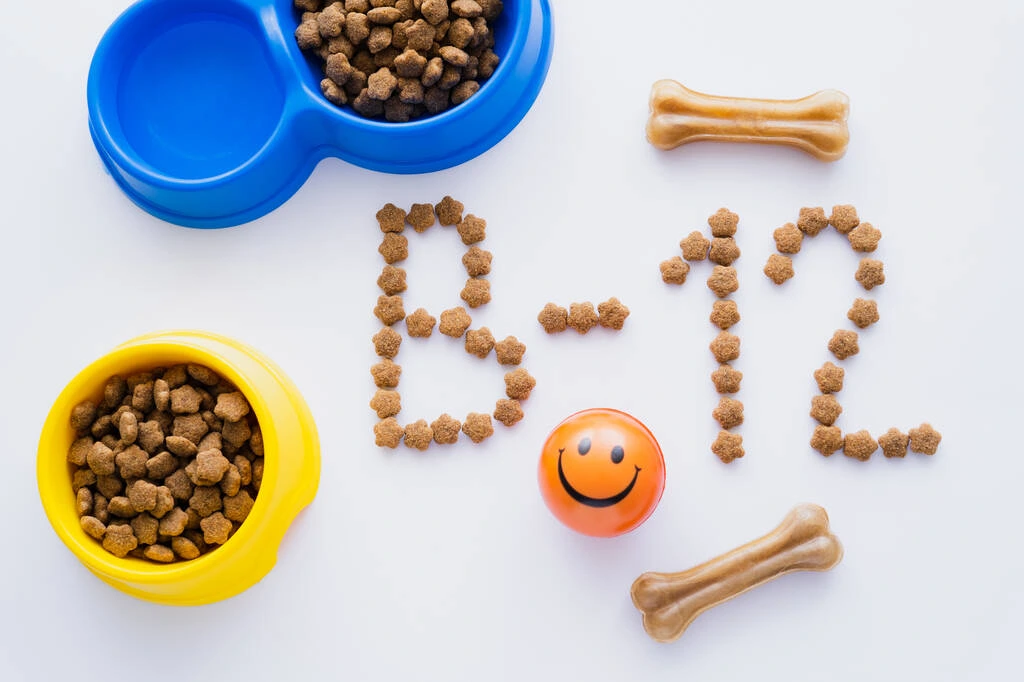Vitamin B12 or folate deficiency anaemia is a type of anaemia where the body does not have enough healthy red blood cells because it lacks either Vitamin B12, folate, or both. In this condition, the red blood cells produced are larger than normal and often irregular in shape. They cannot carry oxygen as efficiently, which leads to a range of symptoms including fatigue, weakness, pale skin, shortness of breath, and, in the case of Vitamin B12 deficiency, nerve problems.
Both Vitamin B12 and folate are essential nutrients that the body cannot produce on its own, meaning they must come from the diet or supplements. They are needed for making DNA and ensuring that cells, especially red blood cells, develop properly. Without these vitamins, the bone marrow releases immature cells that cannot function correctly.

This condition is not rare, but it is often overlooked because its symptoms can develop slowly and mimic other health problems. Understanding it in detail can help with early recognition, proper diagnosis, and effective treatment.
Quick reference:
| Feature | Vitamin B12 Deficiency | Folate Deficiency |
|---|---|---|
| Nutrient missing | Cobalamin | Folate (Vitamin B9) |
| Food sources | Meat, fish, eggs, dairy | Leafy greens, beans, fortified foods |
| Body storage | Stored in the liver for years | Small stores, depleted in months |
| Nervous system effects | Common | Rare |
| Common causes | Poor absorption, vegan diet, pernicious anaemia, gut surgery | Poor diet, alcoholism, pregnancy, certain drugs |
| Treatment | Vitamin B12 injections or tablets | Folate tablets or diet improvement |
Role of Vitamin B12 in the Body
Vitamin B12, also called cobalamin, is a water-soluble vitamin that plays a vital role in several body functions. One of its main jobs is helping to make DNA, the genetic material in all cells. Without B12, cells cannot divide properly, leading to abnormal and oversized red blood cells.

It also plays an essential role in maintaining the myelin sheath, the protective covering around nerves. This is why a deficiency can cause neurological symptoms such as numbness, tingling, balance problems, and memory issues.
Functions of Vitamin B12
- Helps produce red blood cells in the bone marrow
- Maintains healthy nerve cells and supports nerve signal transmission
- Supports brain function and mental clarity
- Helps convert food into energy
- Works with folate to regulate homocysteine levels, reducing heart disease risk
Role of Folate in the Body
Folate, also known as Vitamin B9, is another water-soluble vitamin crucial for cell division and DNA production. Unlike Vitamin B12, the body does not store large amounts of folate, so a regular dietary supply is essential.
Folate is especially important during pregnancy because it supports the development of the baby’s brain and spinal cord. A deficiency during pregnancy can cause neural tube defects in the newborn.
Functions of Folate
- Supports the production and repair of DNA and RNA
- Works with Vitamin B12 to form healthy red blood cells
- Aids in the metabolism of amino acids
- Essential for growth and development in pregnancy and infancy
Causes of Vitamin B12 or Folate Deficiency Anaemia
Dietary deficiency
A poor diet is one of the simplest causes. People who do not consume enough animal products (for Vitamin B12) or green vegetables and legumes (for folate) can become deficient. Vegans, for example, are at higher risk of B12 deficiency unless they take fortified foods or supplements.
Poor absorption in the gut
Even with a good diet, some people cannot absorb these vitamins due to digestive system problems. Conditions like coeliac disease, Crohn’s disease, or certain surgeries that remove parts of the stomach or small intestine can affect absorption.
Pernicious anaemia
This is an autoimmune condition where the body attacks cells in the stomach that produce intrinsic factor, a protein needed to absorb Vitamin B12. Without intrinsic factor, no matter how much B12 you eat, your body cannot take it in.
Increased demand
Pregnancy, rapid growth during adolescence, and certain illnesses can increase the body’s need for these vitamins. If intake does not match the increased demand, deficiency can develop.
Alcoholism
Excessive alcohol intake can reduce folate absorption and increase its loss from the body. Alcoholics are often malnourished, further contributing to the problem.
Medications
Some medicines interfere with absorption or metabolism of B12 and folate. For example, metformin (for diabetes) can lower B12 absorption, and certain anti-seizure drugs can affect folate.
Symptoms of Vitamin B12 or Folate Deficiency Anaemia
The symptoms often develop slowly over months or years. They can be mild at first but may worsen without treatment.
General symptoms for both deficiencies
- Tiredness and fatigue
- Weakness
- Pale or yellowish skin
- Shortness of breath, especially during activity
- Heart palpitations
- Difficulty concentrating
Vitamin B12-specific symptoms
- Numbness or tingling in hands and feet
- Balance problems and unsteady walking
- Memory loss or confusion
- Depression or mood changes
- Vision problems due to optic nerve damage
Folate-specific symptoms
- Irritability
- Diarrhoea
- Mouth ulcers
- Swollen tongue (glossitis)
How the Body Makes and Uses Red Blood Cells
Red blood cells are made in the bone marrow, the soft tissue inside bones. Vitamin B12 and folate are both essential in this process. They help cells divide correctly, producing normal-sized red blood cells with the right amount of haemoglobin.
When either vitamin is missing, the bone marrow releases large, immature cells called megaloblasts. These cells cannot carry oxygen properly and often die sooner than normal, worsening the anaemia.
Summary
| Step in red cell production | Role of B12 and Folate | What happens if deficient |
|---|---|---|
| DNA synthesis | Both vitamins needed for cell division | Cells grow but fail to divide properly |
| Haemoglobin production | Supports the building of haemoglobin molecules | Less haemoglobin, less oxygen carried |
| Maturation of cells | Ensures normal shape and size of red blood cells | Cells remain large and irregular |
Diagnosis
Doctors use a combination of medical history, physical examination, and blood tests to diagnose Vitamin B12 or folate deficiency anaemia.
Common tests
- Complete blood count (CBC) – shows anaemia with large red cells (high mean corpuscular volume)
- Serum Vitamin B12 level – low in B12 deficiency
- Serum folate level – low in folate deficiency
- Methylmalonic acid and homocysteine tests – high levels suggest B12 deficiency
- Antibody tests – detect pernicious anaemia
- Bone marrow biopsy – rarely needed, but can confirm megaloblastic changes
Example
If a patient has fatigue, pale skin, and tingling in the hands, a CBC may show large red blood cells. A low B12 level and high methylmalonic acid confirm B12 deficiency.
Treatment
Treatment depends on which vitamin is lacking.
For Vitamin B12 deficiency
- Injections of Vitamin B12 (hydroxocobalamin or cyanocobalamin) are often given initially, especially in severe deficiency or if absorption is poor.
- Oral supplements can be used if the gut can still absorb B12.
- Lifelong treatment may be needed in cases like pernicious anaemia.
For folate deficiency
- Oral folic acid tablets are given daily until blood levels return to normal.
- Diet should be improved with folate-rich foods.
Important note
Folate supplements should not be given before checking B12 levels, as they can improve anaemia but allow nerve damage from B12 deficiency to continue unnoticed.
Prevention
- Eat a balanced diet with enough B12 and folate-rich foods
- For vegans, include fortified plant-based milk or cereals, or take B12 supplements
- Pregnant women should take folic acid supplements before and during pregnancy
- Treat digestive disorders that affect absorption
- Regularly check vitamin levels if on medicines that affect absorption

